It’s a little village by the Dreketi River where families toil the land and fish for their livelihoods. The village of Nabavatu sits on a hill and the river links them to many other villages inland. About 38 families were there when Tropical Cyclone Ana struck in January of 2021 and left the entire village displaced.
The once peaceful rural paradise turned into a nightmare in Dreketi, Macuata since the devastation. Today they continue to live in tents, endured the different weather conditions from cold nights to staggering temperatures in the hot sun.
They’ve been told of many plans of relocation, but since January 2021 families continued to pray for a miracle.
Experiences since 2021
While many plans have unfolded one thing remains clear, they are tired of living in tents.
The conditions of their temporary shelters have deteriorated significantly exposing them to various pests and health issues, including skin diseases. The lack of adequate facilities and the harsh weather have made their living situation increasingly difficult, particularly for the elderly and vulnerable groups.
Many leaders including international renowned people have visited, reports of their experiences and challenges recorded by civil societies, but families including women and children continue to sleep in tents.
Nothing has changed much except for the fact that they are desperately banking on a plan by Government to relocate them to the identified piece of land. By next month these villagers will mark the fifth year of living in such conditions.
For 76-year-old Lavenia Voutua living in the tent with her daughter has not been easy.
“At my age, it is very difficult because we have limited space to move around in the tent even to the point where I need to crawl or bend down while walking through the tent,” she said.
“When I get sick or my grandchildren, we have to look for shady places outside so we can rest for the day.
“This is because the tent is very hot to live in during hot days.”
The Nabavatu villager said this was the first time for her to experience such a situation.
“We left our houses in the village because TC Ana damaged it and we cannot move back there,” she said.
Women’s experience
Another villager Ana Vosalevu said when they first moved to the tent, her family shared with six other families.
“That was challenging, but we thank God for showing us what love is all about and I also thank our forefathers and elders for teaching us about Christ and our faith from when we were small,” she said.
“I believe that got us through the first year we shared tents because we ate together, our children studied together and we helped each other.
“But I won’t deny it, it wasn’t easy. The seven families had to separate their spaces, but when we slept at night everyone shared the floor.”
Despite this dilemma, she said their children who shifted to the tents at primary school have moved onto secondary while the secondary have gone to tertiary institutions.
“They’ve done well in school. We also were blessed to have the support of teachers in schools of Dreketi because they allowed our children to study in the classrooms after school hours,” Ms Vosalevu said.
“This is because we had no electricity in our tents and the solar supplied was not enough to cater for all our children.
“So I believe it was also a communal approach that helped us all these years.”
Looking back at the four years, Marica Malumuca believes the villagers are some tough people.
“Our husbands continued farming, women sold in markets and our children attended school,” she said.
“It was life as usual despite living in tents. Our faith saw us through, believing in God who certainly helped us live and share tents with other families.
“We also shared bathrooms and rest rooms and we did all that by just considering others. We also made sure there was no unnecessary fight or quarrelling.”
While some women sold crops and fish parcels in markets, others pursued their handicraft and mat weaving businesses.
Filo Ramasi was one who weaved and sold mats to earn an income for her family.
“It’s good money and this helped us through financially,” she said.
“Weaving mats was also done to cater for functions and we did that in our tents and even though it can be hot at times, we just needed to do it.”
Earlier this year, Government commissioned the new village site near Nabavatu Village with plans to build 37 new houses for the affected families.
Government’s assurance
Rural Development Minister Sakiasi Ditoka said a tender process had been advertised.
He told The Fiji Times that this process was to allow companies to apply for the construction of the houses.
“We are trying to make sure we follow every step so that we are not delayed further down the line.”
Commissioner Northern Uraia Rainima said the construction of houses would soon take place.
He said it was important and imperative to go through the processes well before construction started.
n This is a story grant supported by Earth Journalism Network.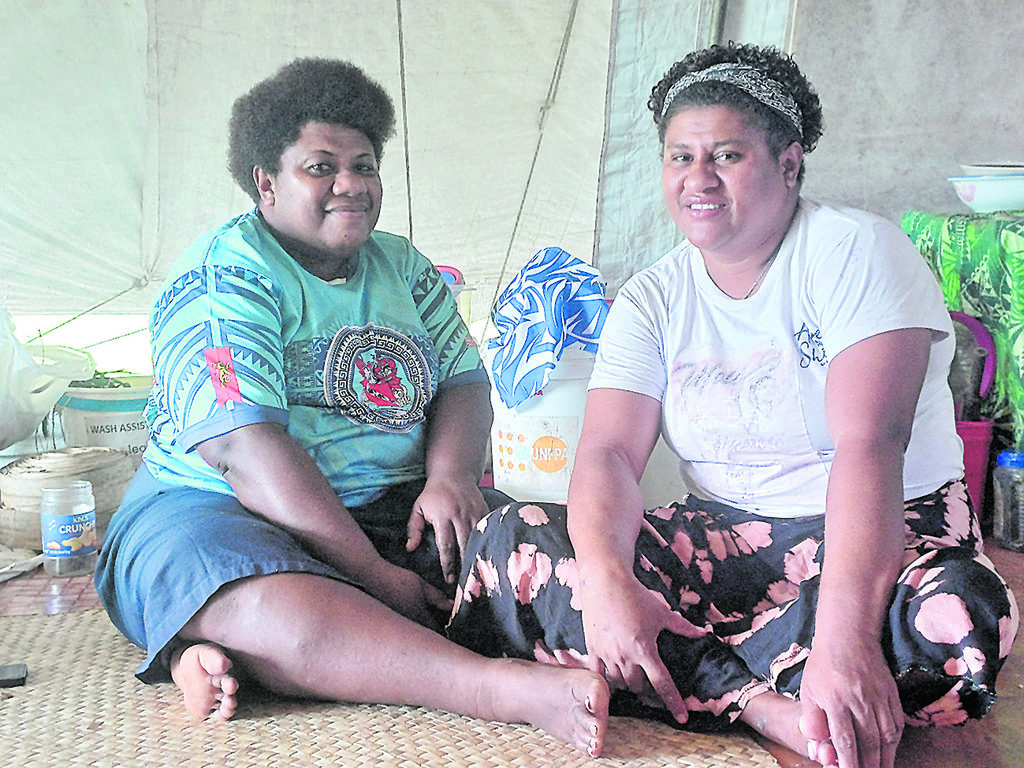
Filo Ramasi relaxing inside her tent with with another villager. Picture SERAFINA SILAITOGA
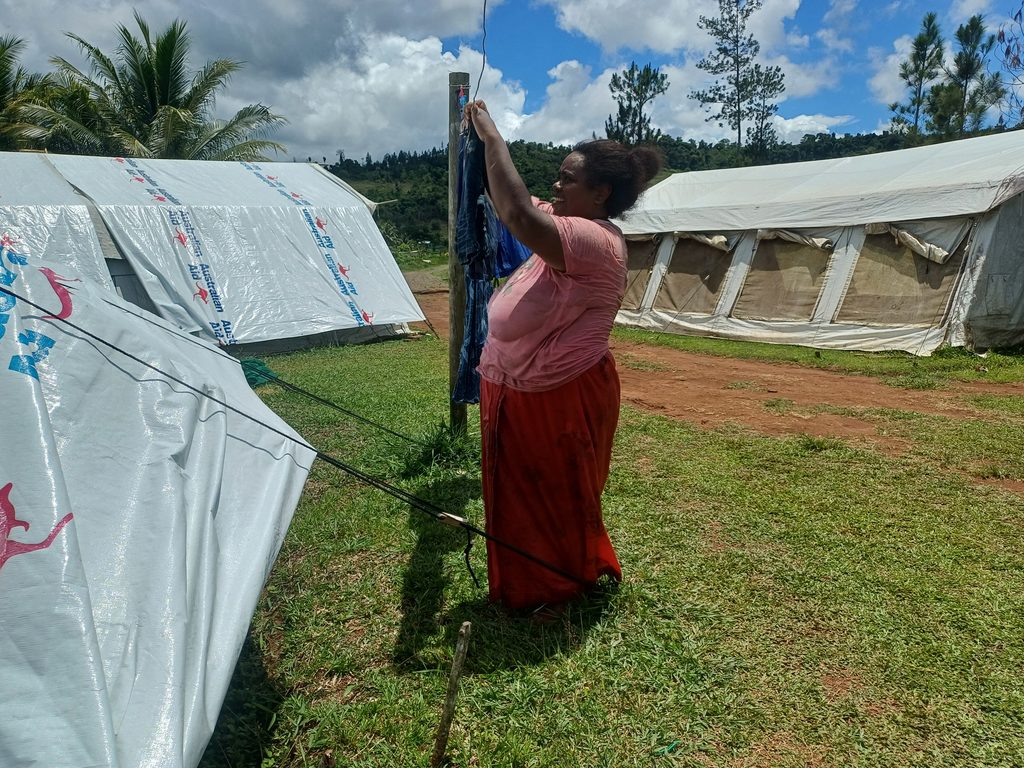
Repeka Dibogi hangs clothes out to dry beside tents they call home. Picture SERAFINA SILAITOGA
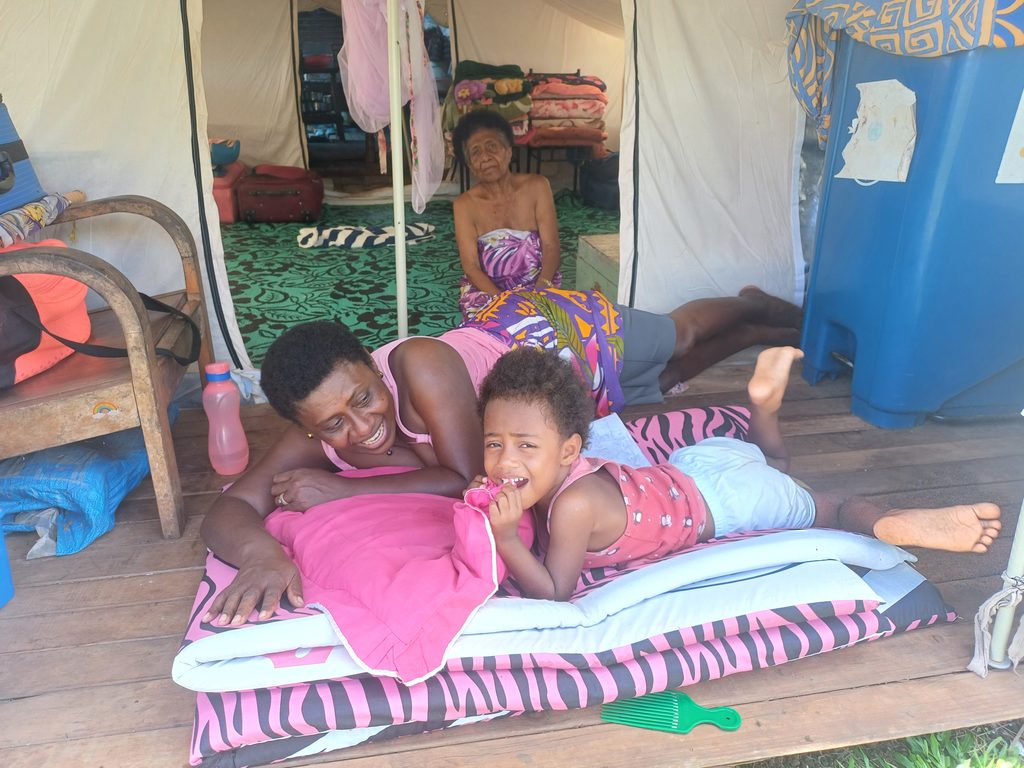
Lavenia Voutua (pink vest) with her daughter and
granddaughter at a tent they call home.
Picture SERAFINA SILAITOGA
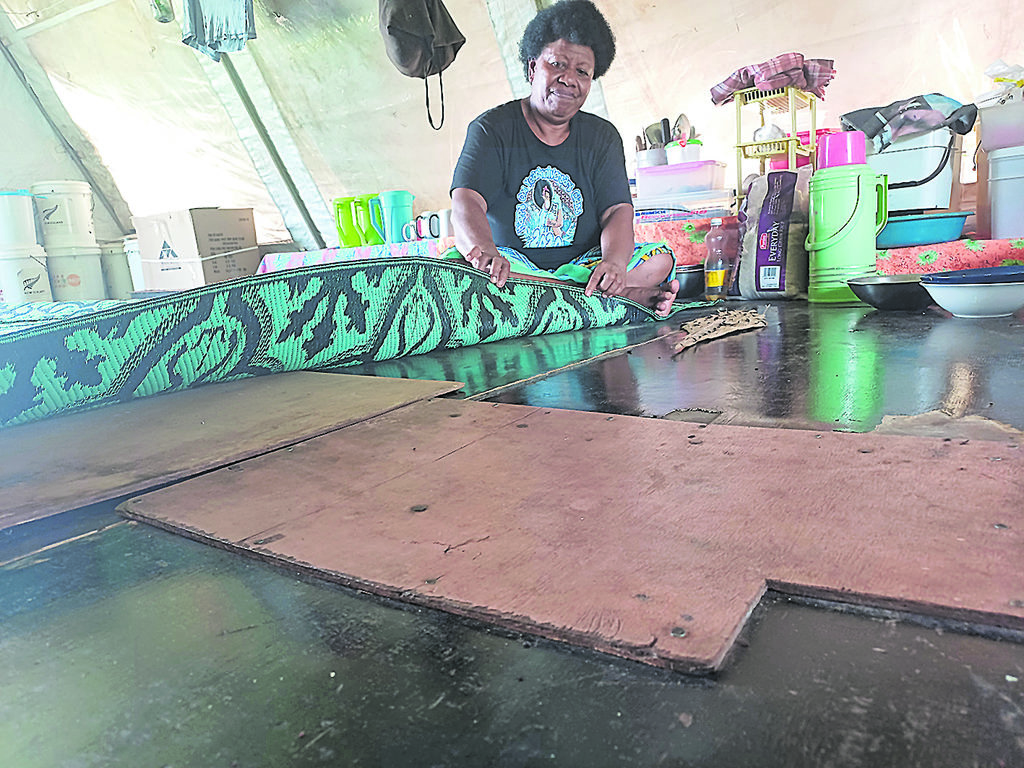
Marica Malumuca shows the board they have used to cover up
the floor. Picture SERAFINA SILAITOGA
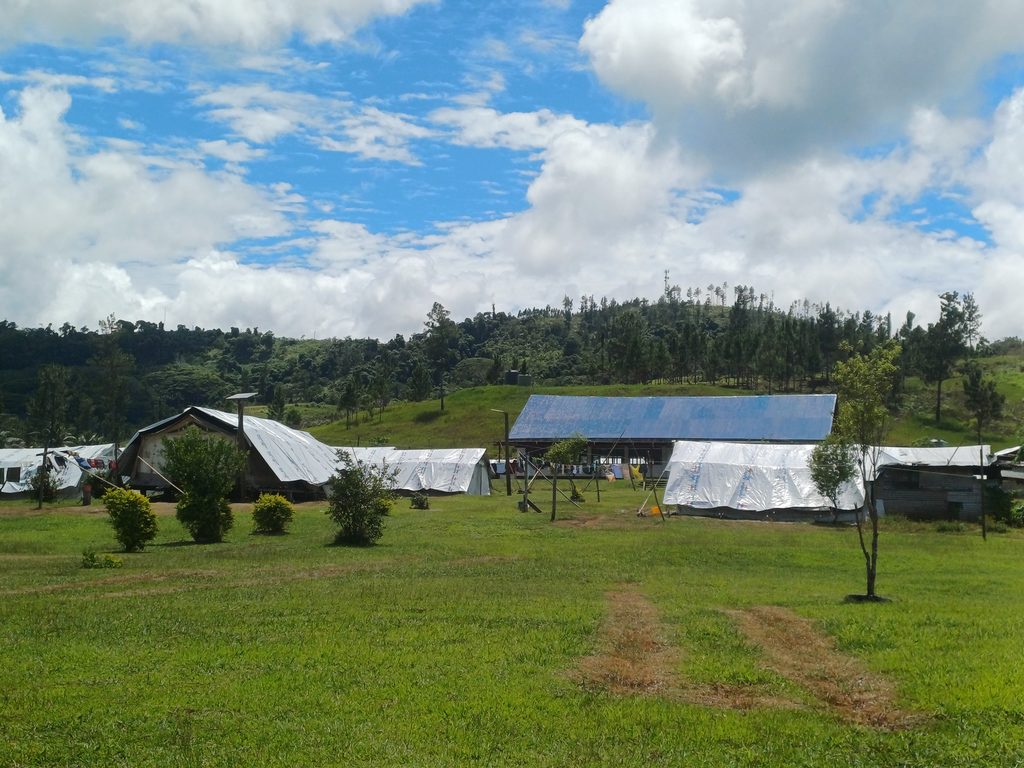
Tent homes for the families of Nabavatu Village in Macuata.
Picture SERAFINA SILAITOGA
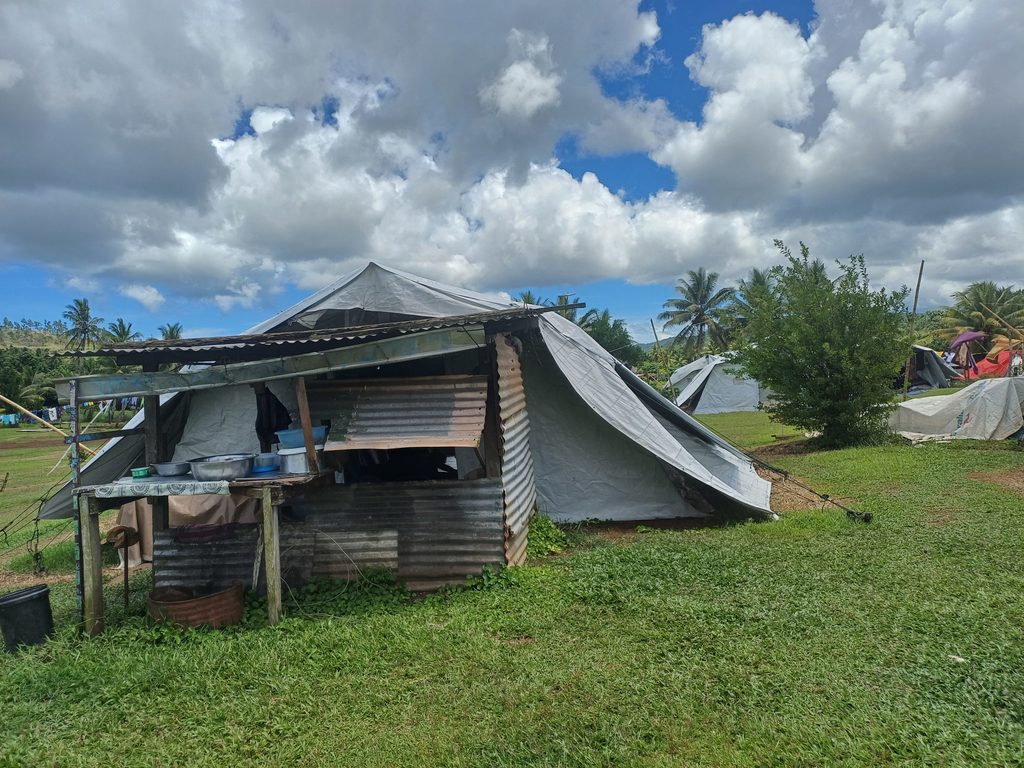
Roofing iron used to build a makeshift home in Dreketi.
Picture SERAFINA SILAITOGA
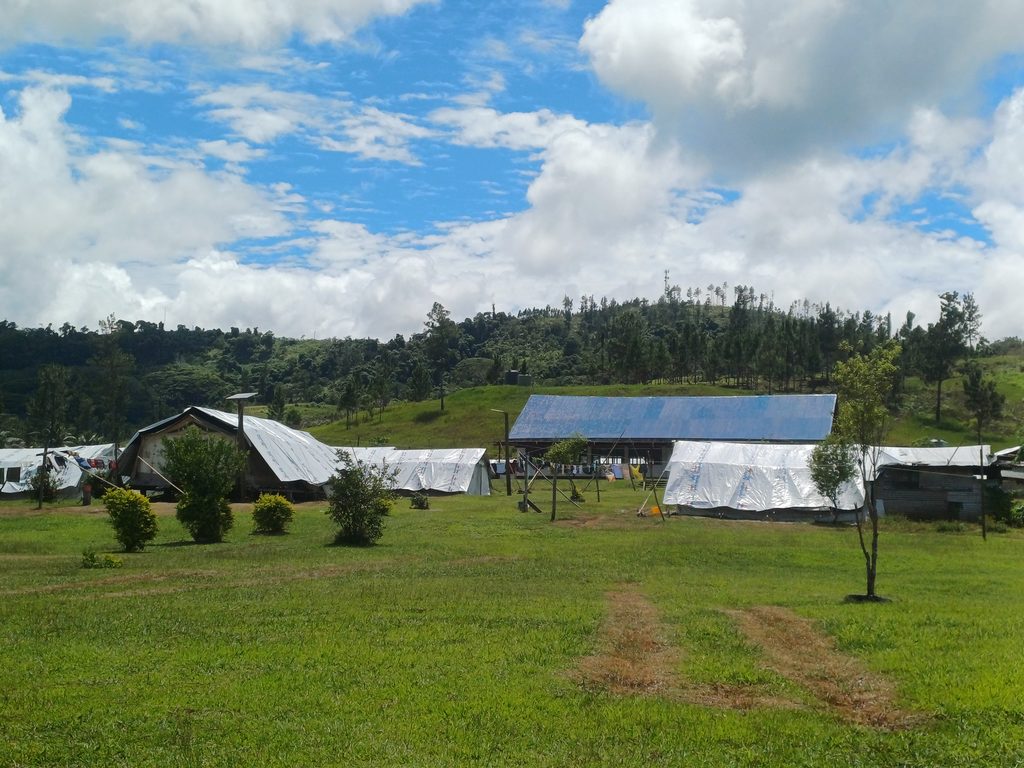
Tent houses for the families of Nabavatu Village in Macuata. Picture SERAFINA SILAITOGA



